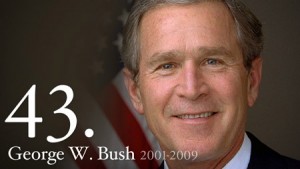
France and Germany were prepared in spring 2005 to negotiate on an Iranian proposal to convert all of its enriched uranium to fuel rods, making it impossible to use it for nuclear weapons, but Britain vetoed the deal at the insistence of the United States, according to a new account by a former top Iranian nuclear negotiator.
Seyed Hossein Mousavian, who had led Iran's nuclear negotiating team in 2004 and 2005, makes it clear that the reason that offer was rejected was that the George W. Bush administration refused to countenance any Iranian enrichment capability, regardless of the circumstances. Mousavian reveals previously unknown details about that pivotal episode in the diplomacy surrounding the Iran nuclear issue in memoirs published Tuesday.
Mousavian, now a visiting research scholar at Princeton University's Woodrow Wilson School, had been a top political aide to former president Hashemi Rafsanjani and head of the foreign relations committee of Iran's Supreme National Security Council during his political-diplomatic career in Iran.
Mousavian had been entrusted with Iran's most sensitive diplomatic missions, including negotiations on a strategic understanding with Saudi crown prince Abdullah in the early 1990s and with U.S. officials on Afghanistan and Al-Qaeda in 2001 and 2002, his memoirs reveal. But he was arrested by the Mahmoud Ahmadinejad administration on charges of "espionage" in April 2007.
The British and U.S. refusal to pursue the Iranian offer, which might have headed off the political diplomatic crisis over the Iranian nuclear program since then, is confirmed by a former British diplomat who participated in the talks and former European ambassadors to Iran. Mousavian writes that one of the European negotiators told him that "they were ready to compromise but that the United States was the obstacle."
The episode occurred a few months after an agreement between Iran and the British, French and German governments on Nov. 15, 2004, on terms for negotiations on "long-term arrangements," during which Iran agreed to maintain a voluntary suspension of enrichment and other nuclear activities.
The agreement to be negotiated was to "provide objective guarantees that Iran's nuclear program is exclusively for peaceful purposes" as well as "firm guarantees on nuclear, technological and economic cooperation and firm commitments on security issues."
But the EU objective in the talks was to demand a complete end to all Iranian enrichment. At the March 23, 2005, meeting in Paris, the EU called for an indefinite suspension of enrichment by Iran, meaning suspension beyond the negotiations themselves.
At the same meeting, Iranian negotiators submitted a proposal that included a "policy declaration to convert all enriched uranium to fuel rods" and "committed to getting the Additional Protocol," which would allow the IAEA to make snap inspections on undeclared facilities, ratified by its parliament.
Conversion of low-enriched uranium (LEU) to fuel rods only usable for power plants could have provided a guarantee against using the enriched uranium for nuclear weapons.
Iran did not have the capability to fabricate fuel rods, so the implication was that the LEU would have to be shipped to another country for conversion or would have to be done under international auspices within Iran. Once the fuel rods were fabricated, it would be practically impossible for Iran to reconvert them for military purposes.
Peter Jenkins, then the British permanent representative to the IAEA and a member of the British delegation to the Paris meeting with Iran, recalled in an interview with IPS, "All of us were impressed by the proposal."
The European delegations asked for a break to discuss it among themselves, Jenkins recalled, but soon decided to tell Iran they would "need more time to consider further." But the Europeans did not seek to explore the Iranian offer further.
Mousavian reveals that Iran learned a few weeks after that meeting that the Europeans had no intention of negotiating any agreement that would allow Iran to have any enrichment program.
On April 12, 2005, Mousavian recounts, the French ambassador to Iran, Francois Nicoullaud, told him it was impossible for the Europeans to negotiate on the Iranian proposal. "For the U.S. the enrichment in Iran is a red line which the EU cannot cross," Mousavian quotes Nicoullaud as saying.
(Note: You can view every article as one long page if you sign up as an Advocate Member, or higher).





